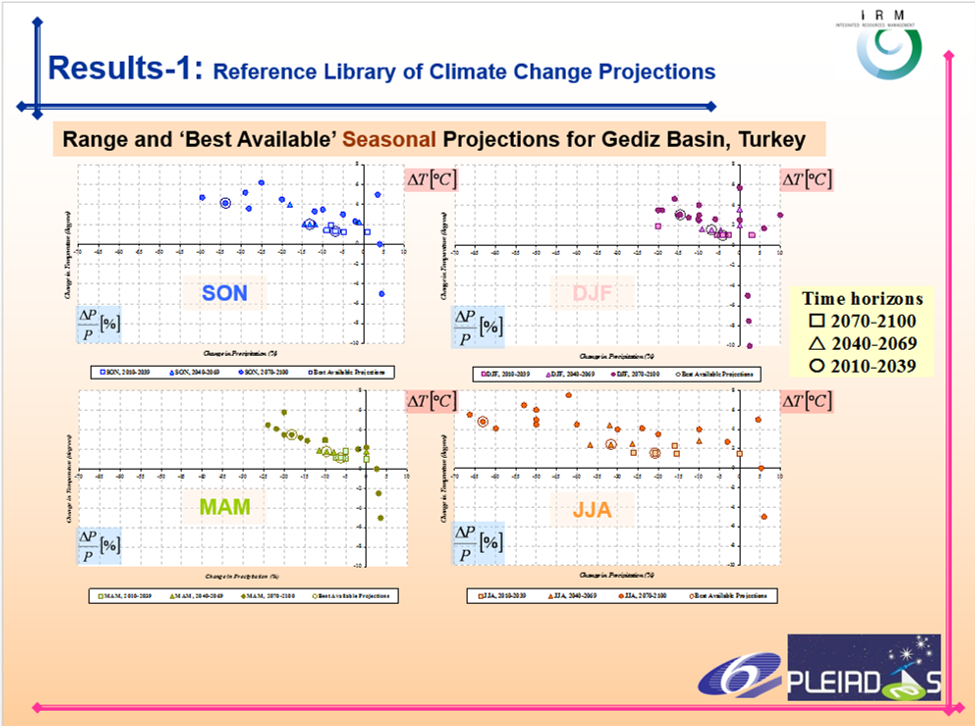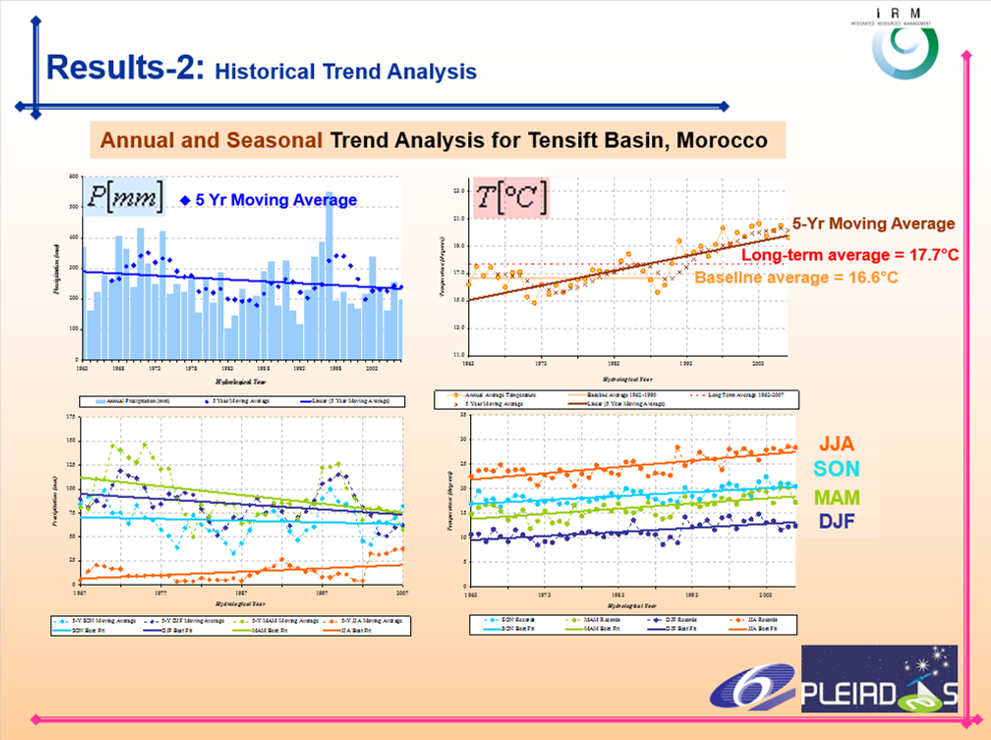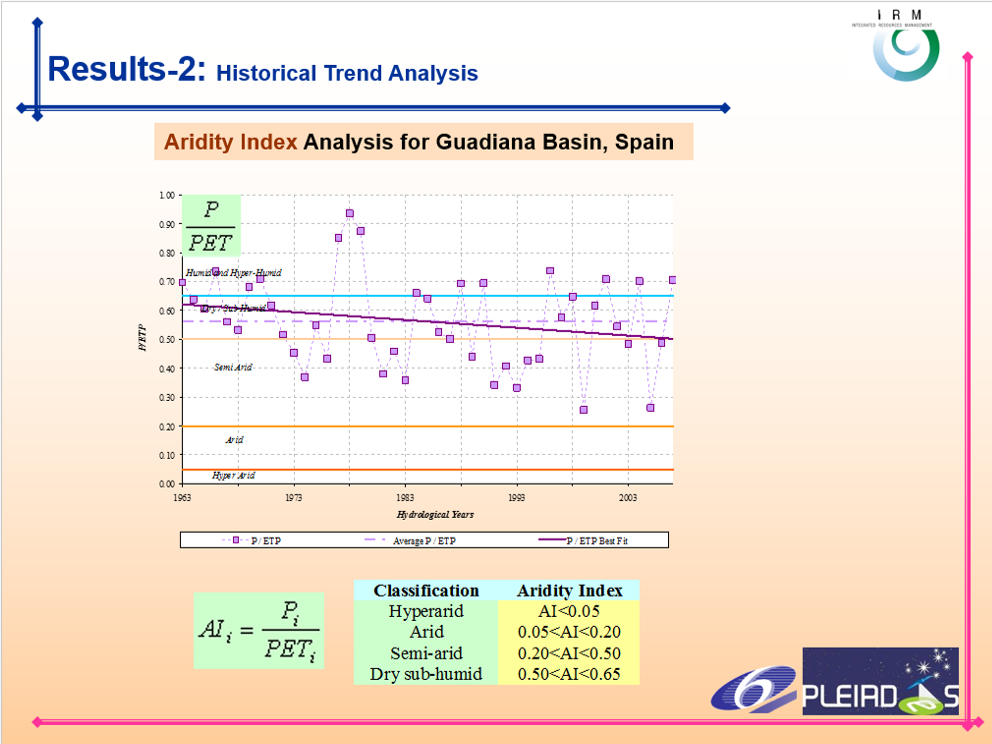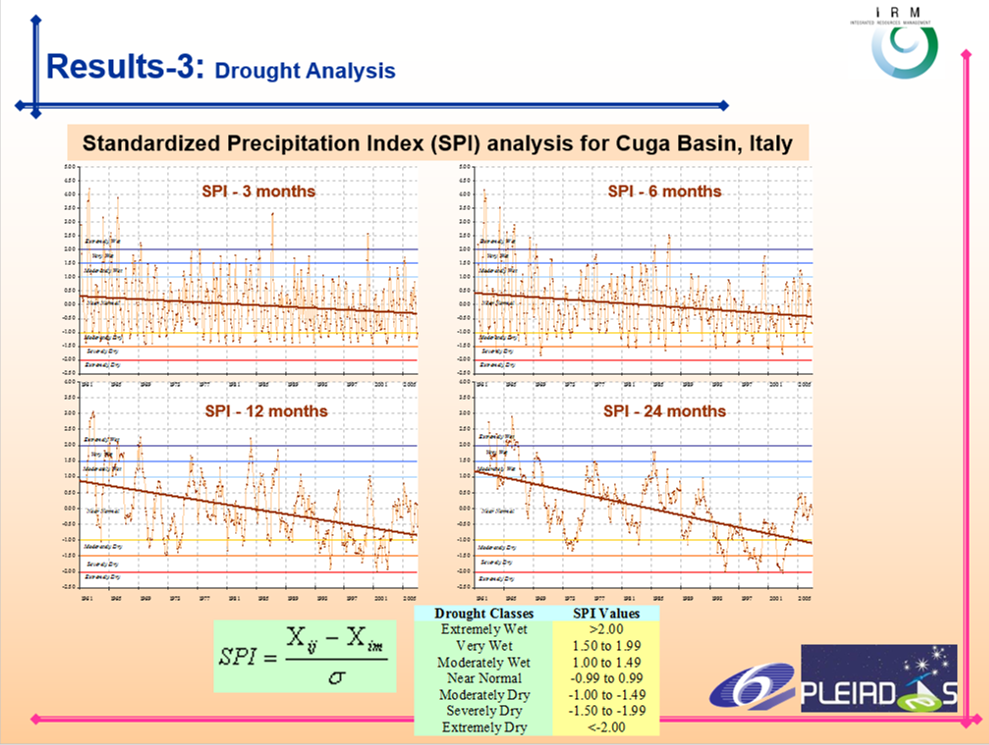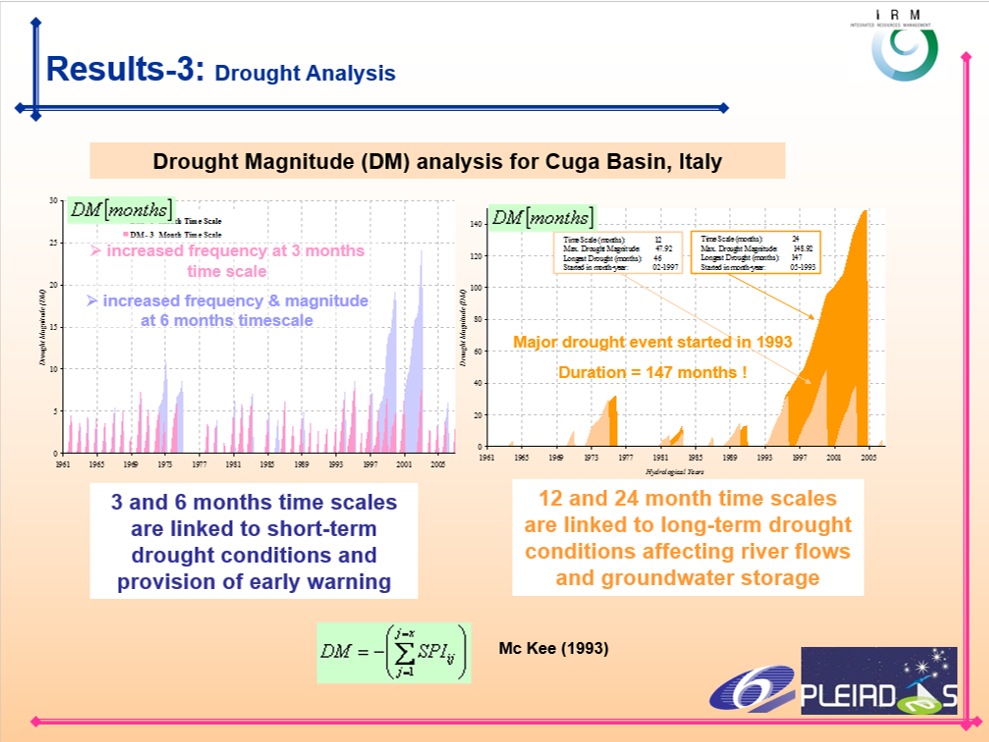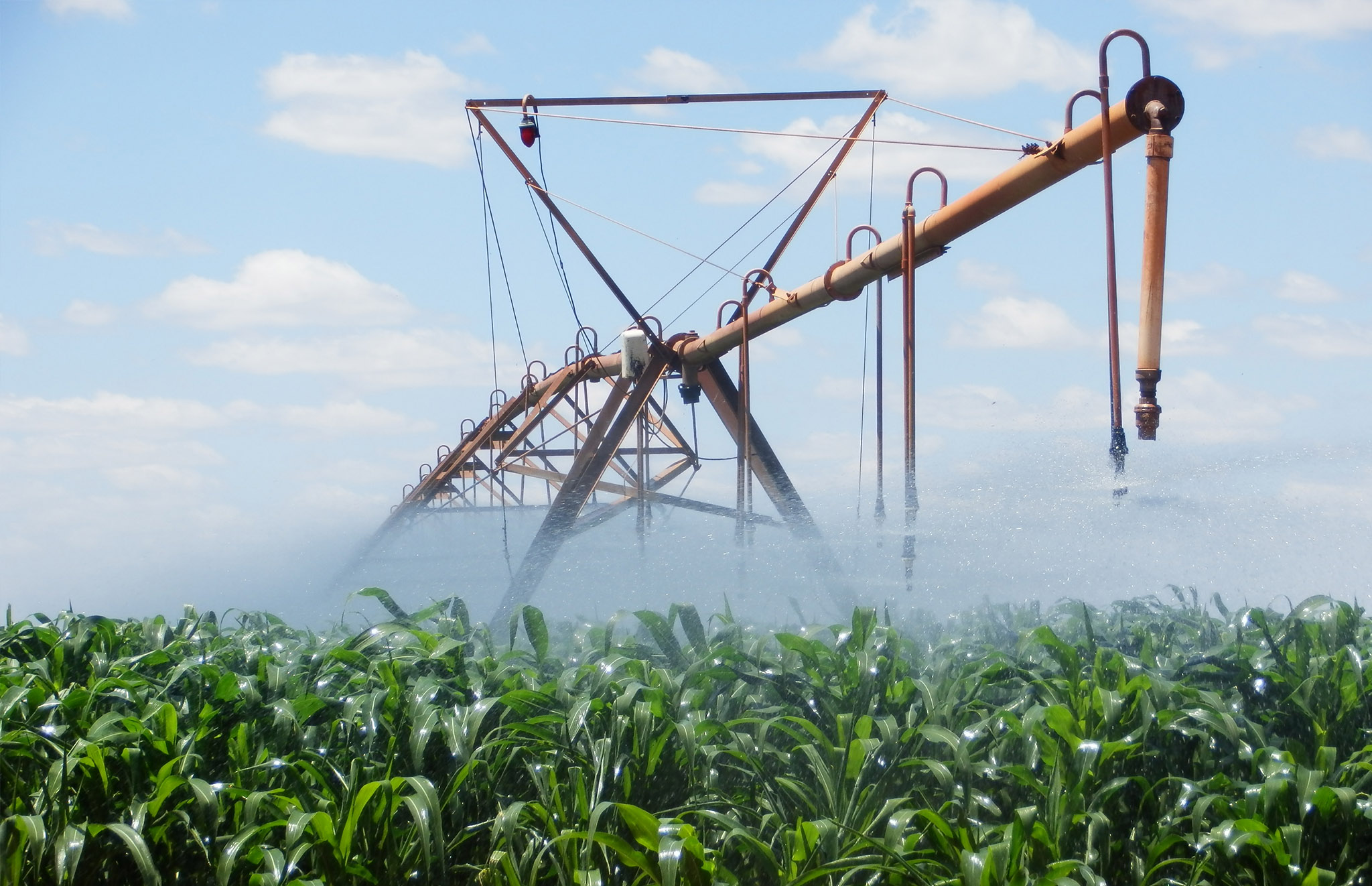Project logo

Title
Participatory multi-Level EO-assisted tools for Irrigation water management and Agricultural Decision-Support.
23 partners from:
- Spain
- Malta
- Portugal
- Italy
- France
- Greece
- Turkey
- Moroccco
- Peru
- Mexico
- Brazil
IRMCo’s role
In the PLEIADeS project, IRMCo had the lead-role for the Assessment of the Impact of External Drivers: Climate Change and Policies (WP7), applied in nine pilot areas as well as for the drawing up of a Gender Action Plan (WP1). Both of these Work Packages were linked to guiding a process of active stakeholder involvement throughout all stages of the research. Dirk De Ketelaere served as Project Manager of PLEIADeS.
EU funding programme
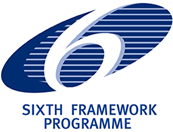
Snippets on project outcomes
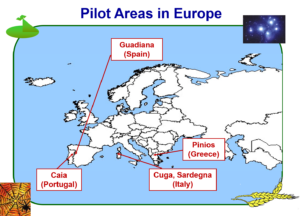
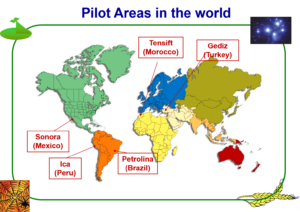
IRMCo’s assessment of the impact of climate change / variability on water resources in the 9 pilot areas was combined with an assessment of the impact of agriculture, water and rural development policies. Our methodological approach consisted of a sequence of 5 steps:
- Selection of ‘best available’ climate change projections with three different time horizons.
- Future scenarios of available water resources based on a historical trend analysis.
- Evaluation of climate change impact indicators, including a comprehensive drought analysis.
- Comparative analysis with observations obtained directly from stakeholders, including: farmers, irrigation advisory services/water user associations and river basin authorities.
- Formulation of management scenarios that may represent adaptation to changing climate.
IRMCo presented the outcomes of the above sequence of steps on the occasion of the 3rd Plenary Assembly in Izmir, Turkey in March 2009.
The overall outcome from the impact analysis across the 9 pilot areas pointed to an increased level of dependency of farmers on irrigation advisory services, who on their part are set to become more strongly dependent on the decisions taken by the river basin authorities. The key lesson learned is that urgent efforts are needed to step up a stakeholder driven, participatory water management, in which informed decisions and policies are reached through active consultation: “Successful adaptation to the impact of climate change / climate variability requires a sound level of preparedness on the part of decision-makers as well as on the part of individual farmers”.
At the start of the project, IRMCo drew up a PLEIADeS Gender Action Plan in the form an action oriented roadmap, and with the ambition to ensure that the project’s outputs incorporated a gender perspective through an effective equal opportunities and gender mainstreaming approach. In their final assessment the rapporteurs of the PLEIADeS Gender Action Group presented the following conclusions:
– Vanja Karadzic, Portugal: When discussing the topic of gender discrimination, important differences were observed across the different pilots, which had to be considered within the context of respect for the local traditions and culture.
– Teresa Oré, Peru: The gender analysis demonstrated very positive results had been obtained, with several regional teams paying attention to involve (more) women, even if different levels of success could be noticed. Researching the role of women, within the socio-economic and cultural conditions in the different pilot areas, was important to then suggest actions how to include (more) women in the participatory process.
– Mounia Benrhanem, Morocco: Water governance involves the entire water family, not only the decision-makers, and it was therefore important to benchmark across the pilot areas in order to gain insight in new strategies, tools and approaches to address gender issues.
As these testimonies confirmed that the PLEIADeS Gender Action Plan did achieve its target objective of raising awareness on gender aspects, it is worth to note that this happened not only within, but also outside the Consortium as evidenced from two invitations to present the gender aspect of the project in international meetings:
- During 14-15 March 2009, Anna Spiteri presented the “Gender Action in PLEIADeS” as Invited Speaker in Topic session 1: “Why Gender Mainstreaming in Water Management?” of the Preparatory Conference on “Women & Gender – Ensuring Equal Participation in World Water Forum 5” organized by the Istanbul Technical University, Turkish Women’s Water Platform (TWWP), Gender and Water Alliance (GWA) and Women for Water Partnership (WfWP), and,
- In May 2009, Vanja Karadzic presented PLEIADeS Gender strategy at the Side event CSD17 “Women and Solutions for Water Scarcity in Agricultre. Exchange and Learning session”, organized by the Women for Water Partnership (WfWP), Dutch Presidency of CSD17, as well as the ministries of Foreign Affairs, Agriculture and of Water, at the UN HQ in New York, US. Her presentation was focused on the gender sensitive approach, developed in PLEIADeS, including actions to integrate and honour women’s perspective, skills and needs, as related to the PLEIADeS technology design.
